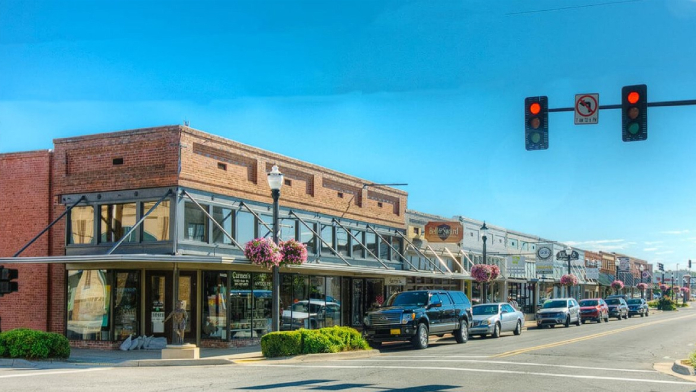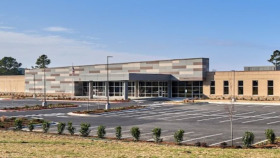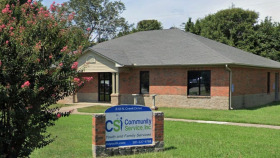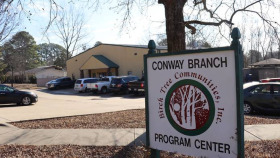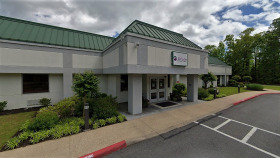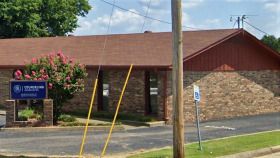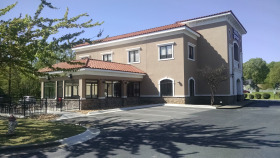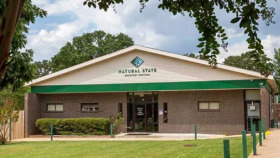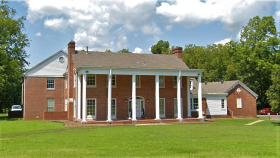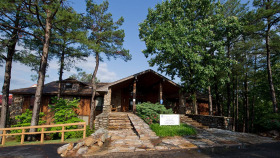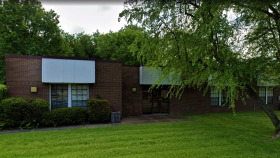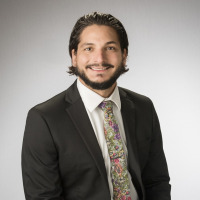Drug and Alcohol Use Statistics in Conway, AR
To better understand the prevalence of drug and alcohol use in Conway, here are some of the statistics for Faulkner County over the past few years:3
10% of students in grades 6 to 12 reported substance use in the past 30 days
16% of residents reported binge drinking in 2019
19% of driving deaths involve alcohol-impaired driving
15 per 100,000 people experience death from a drug overdose
In another study, these were the mental and substance use disorders mortality rates per 100,000 population in 2014:4
Levels of Care for Substance Abuse
Multiple levels of care exist for alcohol and drug rehab in Arkansas. Some residents require all levels of care during their journey to recovery, while others receive only the less intensive options.
Medical Detox
Detox is the process of safely and comfortably removing drugs or alcohol from your system while in a supervised medical setting. Many people choose a medical detox program to prevent severe withdrawal symptoms. This is often the first step in the recovery process, completed before transitioning into formal inpatient addiction treatment services.
Inpatient Care
An inpatient or residential setting involves living at an accredited rehab facility 24/7 to receive treatment for addiction. A combination of evidence-based interventions are provided, including individual and group therapy, nutritional counseling, and medication administration.
Partial hospitalization programs (PHPs)
PHPs are a type of outpatient treatment in Arkansas that often involve many of the same therapies and methods of inpatient care. The difference being that you only visit the drug rehab during scheduled session times, then you can return home.
Intensive Outpatient Programs (IOPs)
A step down from PHPs, IOPs are a type of outpatient treatment in Arkansas allowing you to attend onsite sessions for several hours a day, multiple days each week, while spending the rest of your time at home, working, or fulfilling other obligations.
Standard Outpatient
As the least intensive setting, standard outpatient care is appropriate for Arkansas residents who are highly motivated and have a strong support system. It involves just one or two hours of treatment per week.
Relapse Prevention
Aftercare, or relapse prevention, provides ongoing support after a rehab program is complete. Aftercare may include 12-step groups, non-12-step groups like SMART Recovery, ongoing therapy, sober living homes, and more.
How to Pay for Substance Abuse Treatment in Arkansas
Private Insurance
Every insurance provider in the U.S. is required by law to provide at least some coverage for mental health and substance abuse treatment. In Arkansas, residents should contact their insurance provider to confirm specific coverage with their carrier, including applicable copays.
Sliding Scale Payment Options
Sliding scale payment plans only charge Arkansas residents what they can afford, based on their income. To qualify, residents typically need to provide proof of income and assets.
IHS-Funded Drug Rehabs
Drug rehab programs funded by the Indian Health Service provide free addiction treatment to Arkansas Natives and Indigenous peoples in the U.S.
Traveling to and Within Conway, AR

If you are considering attending a rehab in Conway or visiting a loved one in a Conway alcohol rehab, you will need travel information for the area:
- The closest major airport is Bill and Hillary Clinton National Airport/Adams Field (LIT / KLIT) in Little Rock, 36 miles from the center of Conway, AR.
- METRO Connect Conway public transportation offers shared rides throughout the planned service zone, which covers most areas within the Conway city limits
- Plenty of hotels exist in and around the city for convenient accommodations when visiting.
- Uber, Lyft, and taxi services are available by request throughout the area as another option for transportation.
Whether you choose to travel to Conway for treatment or not, many drug and alcohol rehabs are available in cities across the United States. If you need help finding treatment options that are right for you and your addiction, please call
800-681-1058
(Who Answers?)
.
Arkansas Alcohol and Drug Laws
Arkansas law includes the following policies related to substance abuse:1,2,3,4,5
Substance Abuse and Crime Prevention Act: This act provides treatment opportunities for individuals who are convicted of non-violent crimes. Eligible offenders may serve their time in drug treatment rather than in prison.
Resources
- County Health Rankings Arkansas. (2021). Faulkner County.
- Centers for Disease Control and Prevention. (n.d.). https://www.cdc.gov/chronicdisease/resources/publications/factsheets/alcohol.htm
- The Arkansas Department of Health. (n.d.). Faulkner County
- Institute for Health Metrics and Evaluation. (2014). Faulkner County

